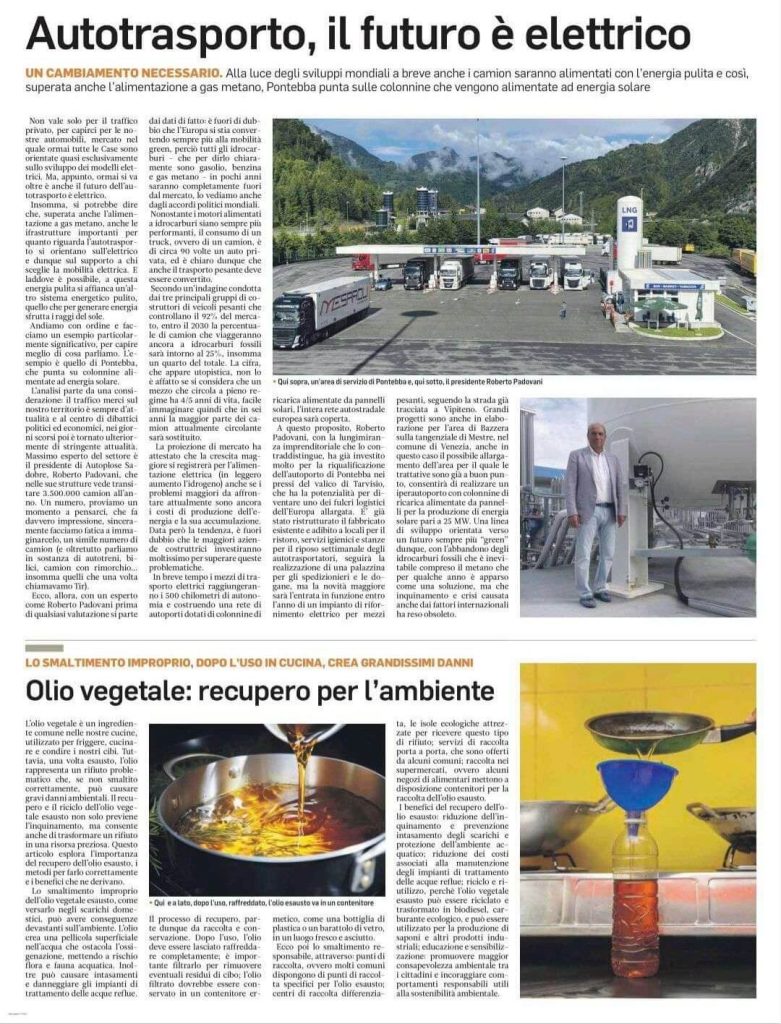The transition towards more sustainable mobility does not concern only private cars. The world of road haulage is also moving in the same direction, and electric trucks are set to become an increasingly common reality. With the gradual phasing out of methane gas as an alternative fuel, the new frontier is represented by electric charging powered by renewable energy sources.
Pontebba Bets on Solar Energy for Heavy Transport
Friuli Venezia Giulia is also investing in the future. In Pontebba, an innovative facility has been built that enables the electric charging of trucks thanks to solar energy. The charging stations are powered by photovoltaic panels and represent a concrete step towards a cleaner, more modern transport system.
As explained by Roberto Padovani, president of the service station that hosted the initiative, the change is already underway:
“Large road haulage companies are investing in electric vehicles. Some for vision, others out of necessity: the increasingly strict limits imposed by the European Union are accelerating this transition.”
Electric Trucks Already in Operation: Up to 500 km of Range
The Pontebba facility is one of the first in Europe dedicated exclusively to heavy electric vehicles. It is designed for fast truck charging, offering a range of around 500 kilometers with charging times of about 45 minutes.
The infrastructure is ready to be expanded with additional charging stations and solar panels, with the aim of creating a benchmark hub for freight traffic in north-eastern Italy.
Clean Energy and Economic Benefits for Businesses
The choice of electric is not only an environmental issue. The production costs of renewable energy are rapidly decreasing, making the transition economically advantageous as well. Leading transport companies are already including these facilities in their industrial plans, focusing on solutions that reduce emissions and increase efficiency.
Infrastructure Ready to Embrace Change
The future of freight transport will be increasingly electric, and European regulations are pushing in this direction. The new logistics hubs will need to integrate:
- rest areas equipped for fast charging
- services for weekly driver rest periods
- infrastructures powered exclusively by clean energy
An example is already operational in Vipiteno, while similar projects are being developed internationally.
Pontebba as a Model of Sustainable Mobility
The initiative implemented in Pontebba demonstrates how technology and respect for the environment can go hand in hand. This solar-powered charging station could become a model replicable in other logistics areas across Europe, helping reduce the environmental impact of long-distance transport.


